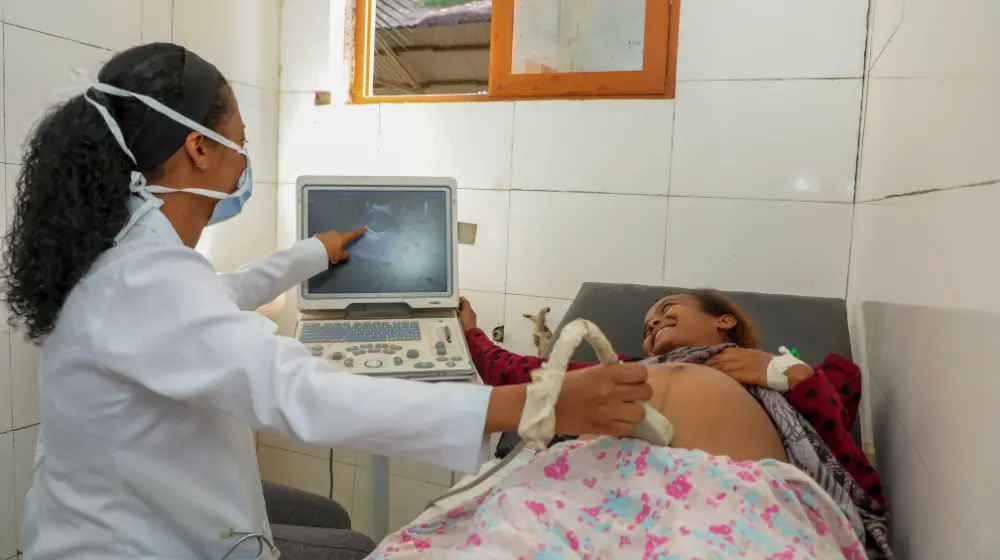
SOMALI REGION, Ethiopia – Abeba Birhanu, a 46-year-old midwife, has spent more than half her life delivering babies at the Karamara Hospital in Jigjiga, the capital of Ethiopia’s Somali region. Throughout those years, she has seen the impact of drought after drought on the women coming through her maternity ward.
“These mothers entrust their precious moments to my care – there are over 600 deliveries in the ward each month,” she told UNFPA, the United Nations sexual and reproductive health agency.
Rates of anaemia and undernutrition among pregnant women in Ethiopia are extremely high – and one of the leading causes of maternal mortality. They are also directly linked to the droughts that have afflicted the country, and the Somali region in particular, for the last decade.
Climate crises are known to have disproportionately harsh effects on women and girls living in the most disadvantaged and remote rural areas: Heat stress has been shown to increase pregnancy risks – including miscarriages and stillbirths – and undernutrition in pregnancy is linked to greater chances of obstetric complications.
In the Somali region, many women live over an hour’s walk from the nearest health facility, and there is no guarantee that it will be functional when they get there. Fortunately, Ms. Abeba’s hospital is able to continue providing care.
“I felt safe and cared for when I knew Sister Abeba was by my side,” said Halima, who gave birth in the maternity ward. “Her experience and kindness made all the difference during one of the most important moments of my life.”
